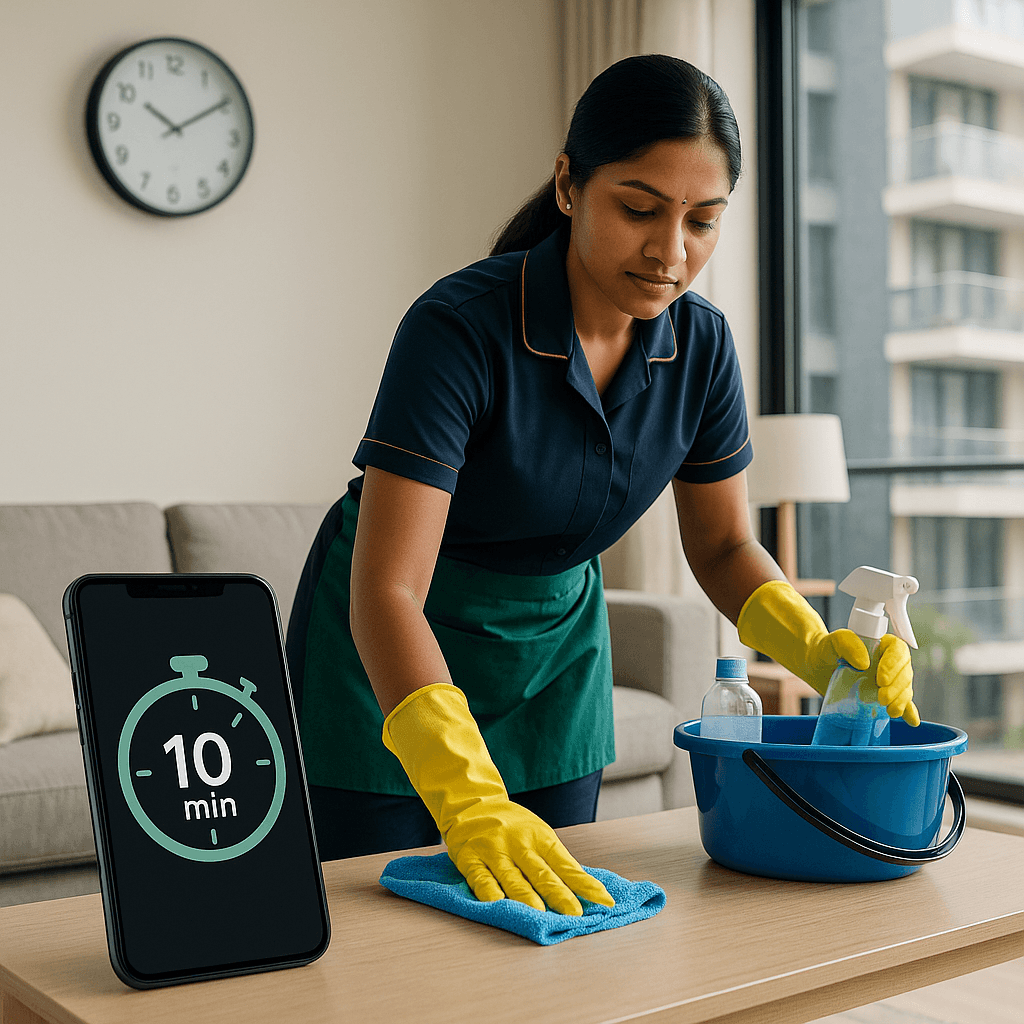India's on-demand economy just got a major validation. Snabbit, the Bengaluru-based house-help startup, closed a $30 million Series C that doubled its valuation to $180 million in just five months - marking one of the fastest valuation jumps in India's startup ecosystem this year. The funding underscores how quickly instant convenience is moving beyond food delivery into home services.
Snabbit just proved that India's appetite for instant everything extends far beyond food and groceries. The on-demand house-help startup closed a $30 million Series C round that catapulted its valuation from $80 million to $180 million in just five months - one of the steepest valuation climbs in India's startup scene this year. The all-equity round was led by Bertelsmann India Investments, with participation from existing backers Lightspeed, Elevation Capital, and Nexus Venture Partners. It's Snabbit's third fundraise in nine months, bringing total funding to $55 million. The rapid-fire funding reflects explosive growth that even seasoned VCs find hard to ignore. Snabbit's daily bookings jumped from about 1,000 jobs in May to more than 10,000 by October. The company crossed 300,000 total orders last month and expects to add another 100,000 customers by November, CEO Aayush Agarwal told TechCrunch. Founded just last year, Snabbit operates what it calls a "hyperlocal network" of 5,000 women experts stationed around dense residential clusters in five major cities. The startup promises house help - from cleaning and dishwashing to laundry and kitchen prep - within 10 minutes of booking. That's a radical departure from traditional models where customers book full-time domestic workers or wait hours for service. "We're basically taking inefficiency in the model and plugging that, rather than saying, 'Hey, this was happening offline, and now we'll do it online,'" Agarwal explained. The numbers tell the efficiency story. Snabbit's customer base exploded from 25,000 in May to over 300,000 today, primarily targeting working professionals and bachelors aged 30-40 who want ad-hoc help rather than full-time domestic staff. The startup reports a 30-35% retention rate and projects $11 million in annual recurring revenue this month. Services are priced around ₹150 ($2) per hour with an average ticket size of ₹240 ($3). Workers earn ₹25,000-₹30,000 ($284-$340) monthly depending on hours worked. The startup has even optimized logistics, reducing average walking distance between jobs from 300 to 250 meters to give workers more productive time. But Snabbit isn't operating in a vacuum. The on-demand home services space is heating up fast. pioneered the category and recently announced plans to double down on instant services to fend off rising competition. Newer players like and are also vying for market share with similar 10-minute promises. Agarwal isn't worried about the competition, though. "In a hyper-local business, you don't win pan India, you don't win cities, you win micro markets," he told TechCrunch. "Out of the micro markets where we both are present, Snabbit is leading in more because we've taken a strategy to build depth as opposed to breadth." Currently operating in 40 micro markets across Mumbai, Bengaluru, Gurugram, Noida, and Pune, Snabbit plans to deepen its presence in existing cities while expanding to Hyderabad, Chennai, Delhi, and Calcutta. The fresh funding will also fuel expansion into higher-frequency categories like cooking, childcare, and elderly care - services that could significantly boost customer lifetime value. The timing couldn't be better. India's urban households are increasingly willing to pay for convenience as disposable incomes rise and work-life balance becomes a priority. The shift mirrors what happened with food delivery a decade ago, when and transformed how Indians think about meals. Now, the same instant gratification mindset is reshaping domestic services. For investors, Snabbit represents a bet on India's evolving consumer behavior. The startup's customer acquisition cost of "well below" ₹500 ($6) suggests strong unit economics, while the 10x growth in daily bookings over six months indicates product-market fit. With backing from tier-one VCs and a clear expansion roadmap, Snabbit is positioning itself as the dominant player in India's nascent instant home services market.












